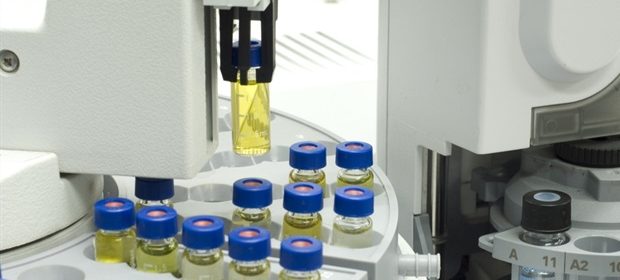Using single-cell mass spectrometry to study antimicrobial treatment failure

Reviewers’ Notes
Laura-Isobel McCall, Ph.D., and Zhibo Yang, Ph.D., co-principal investigators and associate professors of chemistry and biochemistry in the Dodge Family College of Arts and Sciences at the University of Oklahoma, have been awarded a prestigious R01 grant from the National Institutes of Health for their project, "Novel single-cell mass spectrometry to assess the role of intracellular drug concentration and metabolism in antimicrobial treatment failure."
Our project builds upon Dr. Yang's research that shows variations in chemotherapy drugs inside individual cancer cells. Using his techniques with single-cell mass spectrometry, if we find that cells with persistent pathogens also have less intracellular drug levels, then we could explain antimicrobial treatment failure."
Laura-Isobel McCall, Ph.D., associate professor of chemistry and biochemistry in the Dodge Family College of Arts and Sciences, University of Oklahoma
McCall's lab, which works on parasitic infections, will collaborate with Carolyn Ibberson, Ph.D., assistant professor of microbiology in the Dodge Family College of Arts and Sciences, and James Papin, Ph.D., associate professor of pathology in the OU College of Medicine. Ibberson's lab will focus on bacterial infections while Papin's will examine viral infections and focus on PAXLOVID, a COVID-19 treatment.
"My lab focuses on mass spectrometry, which is a very sensitive technique used to detect and identify molecules using trace amounts of samples," Yang said. "With this tool, we can examine individual cells that are less than 10 micrometers in size to determine their resistance to drugs used to fight parasites, bacteria and viruses."
This National Institutes of Health grant is expected to provide $2.65 million in funding over five years.
"I think this funding recognizes how exciting our idea is, and what a big impact our project can have," McCall said. "It also acknowledges that our approach is a new way of thinking about infectious disease treatment failures. If our hypothesis is correct, it could change how we manage and treat infections and what we do about antimicrobial treatment failure."
University of Oklahoma
Posted in: Cell Biology | Biochemistry
Tags: Bacteria, Biochemistry, Cancer, Cell, Chemotherapy, covid-19, Drugs, Intracellular, Mass Spectrometry, Medicine, Metabolism, Microbiology, Pathology, pH, Research, Spectrometry